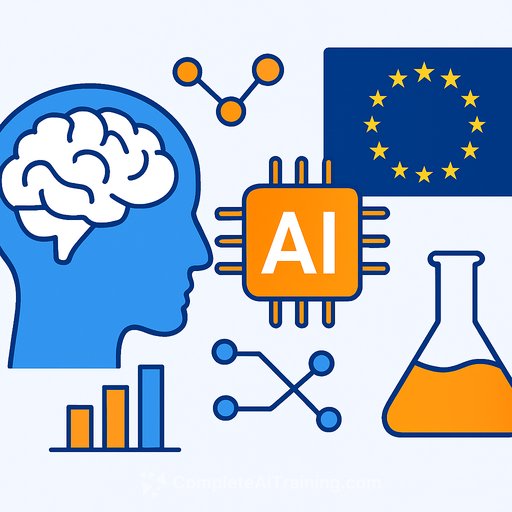Academic Leadership Attitudes Toward Employing Artificial Intelligence in Educational Administration
Abstract
Artificial intelligence (AI) is gaining traction as a tool to improve administrative tasks in education. This study examines how academic leaders in Saudi Arabia view AI applications in administrative processes and identifies challenges to their adoption. A survey of 105 academic leaders revealed that trust in AI and perceived benefits support readiness to adopt AI, with ethical concerns playing a crucial role. Barriers such as limited awareness, insufficient training, budget constraints, and resistance to change were also highlighted. Addressing these ethical and practical issues is essential for successful AI integration in education. The findings suggest important implications for ethics, decision-making, and leadership in educational settings.
Introduction
Artificial intelligence refers to systems capable of performing tasks that typically require human intelligence. Its growing influence is reshaping education, particularly administrative functions. Tools like generative AI (e.g., ChatGPT) offer new opportunities for enhancing decision-making and reducing administrative workloads. This shift requires academic leaders to adapt their roles to leverage AI's potential effectively. By analyzing large data sets, AI can help educators identify trends and improve curriculum and student support.
AI Applications in Education
Since the term AI was coined in 1956, its scope has expanded to include machines that mimic human reasoning and problem-solving. In education, AI supports both teaching and administration. It assists with grading, attendance, course management, admissions, budgeting, and record-keeping. Additionally, AI enables innovative learning methods such as video lectures and virtual reality experiences, enhancing student engagement.
Factors Influencing AI Adoption
Academic professionals hold varied opinions about AI. Some embrace its creative possibilities, while others are cautious, especially regarding ethical concerns. Addressing these differences and establishing responsible AI guidelines is critical for widespread adoption. Ethical use of AI in decision-making processes remains a key topic for discussion.
Challenges to AI Integration
Despite AI’s advantages, several challenges impact its adoption in education. AI tools often lack human interaction, which can limit their effectiveness. Protecting user data and complying with privacy regulations pose additional hurdles. Furthermore, unequal access to technology creates disparities in AI tool usage among students. Ensuring that AI solutions are inclusive and respect privacy is essential.
Research Framework and Questions
This study draws on three theoretical models to understand AI adoption in education: the Technology Acceptance Model (TAM), the Theory of Planned Behavior (TPB), and the Diffusion of Innovation theory (DOI). These frameworks help identify factors influencing academic leaders' readiness to implement AI in administrative processes.
Methodology
A quantitative survey was conducted with 105 randomly selected academic leaders, such as deans and department heads, from various Saudi educational institutions. The study aimed to capture their attitudes toward AI integration in administrative functions.
Results
The survey demonstrated strong reliability and validity of the instrument used. Demographic data and perceptions about AI's role in administration were collected. The results showed consistent positive correlations between trust, perceived benefits, and readiness to adopt AI.
Discussion
Academic leaders showed moderate trust in AI with an average score of 3.78 out of 5. Readiness to adopt AI scored slightly higher at 3.90, while willingness to explore AI applications scored 4.10. These scores suggest openness to innovation but also highlight some reservations about AI’s role in administrative tasks.
Conclusion, Limitations, and Recommendations
The study concludes that trust and perceived benefits positively influence leadership readiness, but ethical considerations hold the strongest impact. Addressing ethical concerns is vital for AI acceptance. Future research should involve larger, more diverse samples and consider longitudinal studies to observe evolving attitudes.
Social Implications
Introducing AI in education may alter power dynamics, access equity, and administrative roles. Ethical dilemmas and cultural changes within institutions could affect student experiences and workforce preparation. Resistance to change is also a notable societal challenge that institutions must manage.
Managerial Implications
Academic leaders view AI as a means to improve operational efficiency and decision-making. Successful integration requires effective change management, customized AI solutions, and fostering a data-driven culture. Collaboration and communication within institutions will also play key roles in AI adoption.
Recommendations for Practice
- Develop training programs to increase awareness and knowledge of AI among academic leaders.
- Address ethical concerns by establishing clear guidelines for AI use in education.
- Secure funding to overcome financial barriers to AI implementation.
- Encourage open dialogue to reduce resistance and promote adoption.
- Conduct further research with larger samples and over longer periods to track changes in attitudes.
For those interested in expanding their knowledge of AI applications in education and administration, explore Complete AI Training's latest AI courses that provide practical skills and insights.
Your membership also unlocks:












